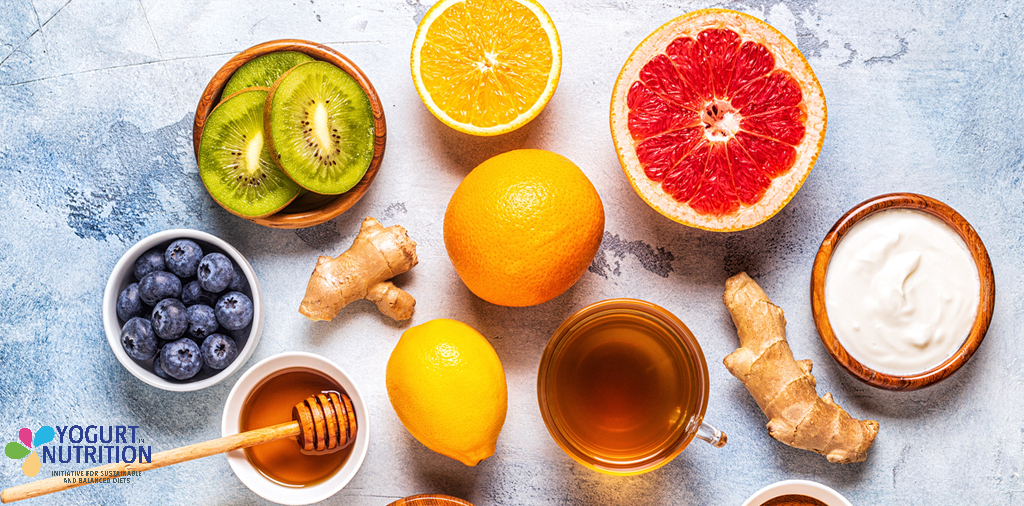What is a good way to help keep our immune system in shape and ready to fend off infections? The answer lies partially in what we eat. What about checking out your diet to make sure it brings the nutrients that contribute to a healthy immune system?
The foods we eat have an impact both directly on the immune system by feeding it with nutrients, and indirectly through their influence on the bacteria living in our gut – the gut microbiota – which are linked to our immune health. Eating a diet rich in plant foods and including fermented foods is important to maintain a healthy mix of gut microbiota and a robust immune system.
Understanding the impact of nutrients and other components of our diet on the microbiota and immunity is of particular interest to scientists as we face the COVID-19 pandemic, says the author.
Nutrients that support the immune system
Our immune system protects us against pathogens, including bacteria, viruses, fungi, and parasites. It becomes more active when we become infected. This increases the demand for nutrients – such as glucose, amino acids and fatty acids – from the diet to provide energy and building materials for new immune cells and regulatory molecules.
Several vitamins (e.g., A, B6, B12, folate, C, D and E) and minerals (zinc, copper, selenium and iron) play key roles in supporting this process and reducing risk of infections, the author explains.
Plant foods, fibre, probiotics and immunity
Choosing the right diet to achieve a healthy gut microbiota can also benefit the immune system, says the author. Scientists believe the microbiota help in immune defence by creating a barrier against pathogens. The composition of this gut microbiota is affected by ageing, antibiotics and disease – and is also strongly influenced by our habitual diet.
Eating plenty of plant foods, fibre, and fermented foods, such as fermented milk, that contain live beneficial bacteria (probiotics), may help to maintain a healthy gut microbiota. Probiotic bacteria can compete with pathogenic bacteria for nutrients, interact with the gut wall and gut-associated immune tissues, and are thought to be able to influence the immune system at sites elsewhere in the body.
A varied diet to support the immune system
The best diet for supporting the immune system includes a wide variety of vegetables, fruits, berries, nuts, seeds, grains and pulses along with some meats, eggs, dairy products and oily fish. Make sure you eat plenty of vegetables and fruits, and cut right back on processed foods, saturated fat and sugar.
‘In essence, good nutrition creates an environment in which the immune system is able to respond appropriately to challenge, irrespective of the nature of the challenge.’ – Calder, 2020.
Find out more: read the original article
Calder PC. Nutrition, immunity and COVID-19. BMJ Nutr Prev Health. 2020;3(1):74-92.
Note: Prof. Philip Calder was the laureate of the 2016 Danone International Prize for Nutrition, awarded by the Danone Institute International and the Fondation pour la Recherche Médicale, for his work on nutrition and immunity.



